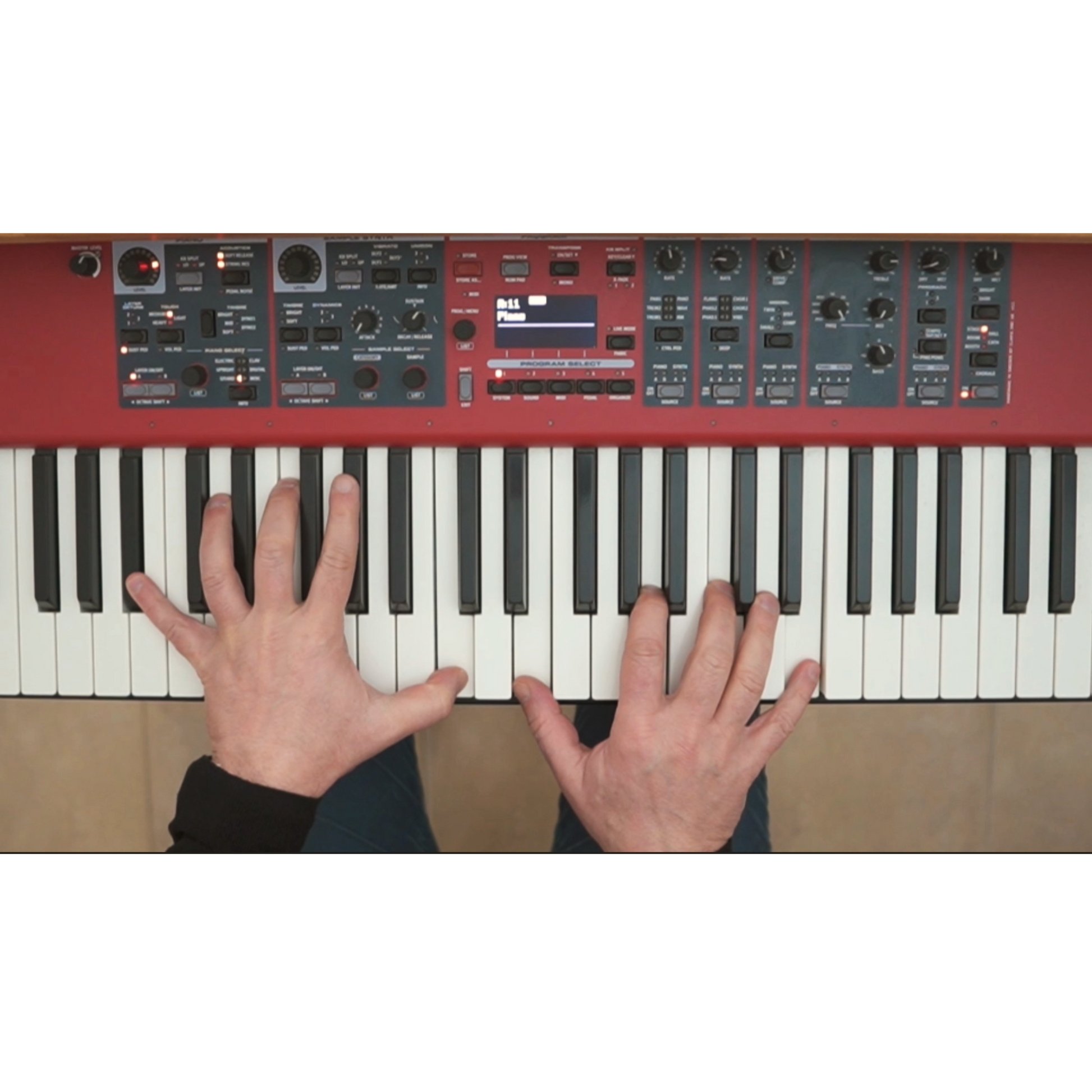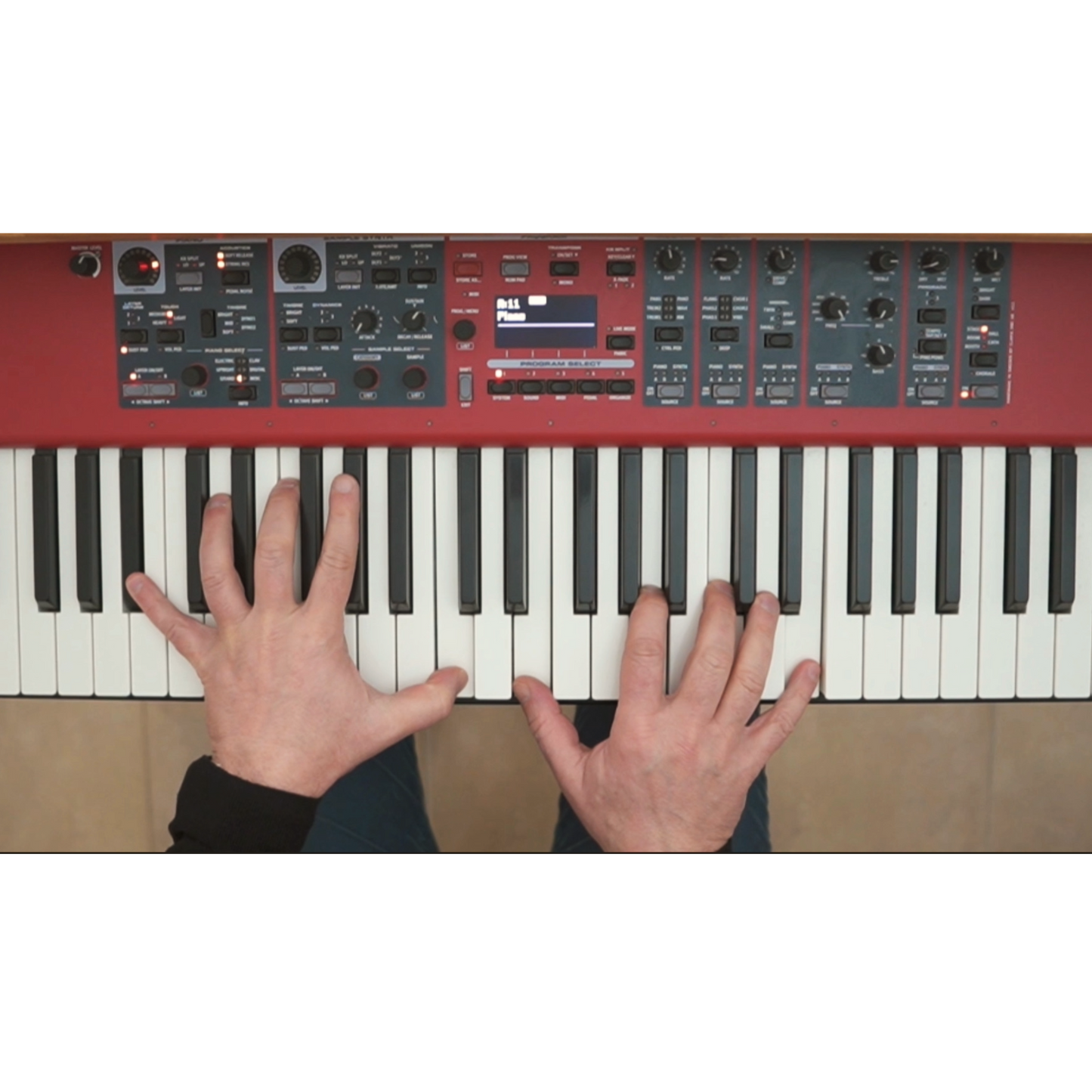
Thinkific
The Dr. Guy Shkolnik Music Theory Course
If you’re a self-taught musician, or a semi–self-taught musician who’s learned from different sources but still struggles to understand how the elements of music work together- this course is for you.
This course is a complete music theory program that covers everything from scales, chords, intervals, inversions, and jazz chord extensions to modulations, modes, modal mixture, and more.It's made entirely of video lessons where I teach everything at the piano, using examples from well-known songs and instrumental pieces. I’ve also included written explanations and hundreds of quizzes so you can test your progress.For those who read music, there’s a seven-page PDF with all the essential progressions from the course.
This course also teaches the type of keyboard playing that sounds pro without being technical, especially useful for accompaniment, orchestral writing, and playing synth pads.
If you’ve already learned the basics and are curious about the more advanced lessons go ahead and explore them! (I know I would!) However, the early lessons of this course lay the foundation for everything that comes later, and are taught at a deeper level than usual.So even if you’re tempted to skip ahead, know that those “basic” lessons are where many students have their biggest breakthroughs. They’re packed with musical examples and insights you probably haven’t seen presented this way.
“Unlike any other online course I've seen. Pinpointed to master fundamental skills.”
— Soubir Moitra, songwriter/producer
SKU:

What's in this Course
1. The Basics
1. The Semitone
2. The Whole-Tone
3. The Major Scale
4. Sharps and Flats
5. Tonic, Dominant, Subdominant and the Leading-Tone
6. Stable Tones and Active Tones
7. Major and Minor Thirds
8. Triads
9. Triads of the Major Scale
2. Basic chord Progressions
10. Chord Progressions: I - IV - V - I
11. The G7 Chord - V7
12. Chord Progressions Guideline 1: Common Tones
13. Chord Progressions Guideline 2: Contrary Motion
14. Chord Progressions Guideline 3: Doubling
3. The Minor Scale
15. Minor Scale: Parallel and Relative
16. Chord Progressions of the Minor Scale
17. The Harmonic Minor Scale
18. The Melodic Minor Scale
19. Minor Scale examples in Real Music
4. Chord Inversions
20. First Inversion Chords
21. Second Inversion Chords
5. the Circle of Fifths
22. The Circle of Fifths
23. Closely Related Keys
6. 7th Chords
24. Types of 7th Chords
25. 7th Chords in a Progression
7. Intervals
26. Intervals
27. Intervals: Consonant and Dissonant
28. Dissonant Intervals and their Melodic Origin.
8. Extensions on the Tonic Chord
29. Chord Extensions
30. Adding 6 to The Tonic Chord
31. Adding the 6 to the I in Minor.
32. The 6/9 Chord
33. The sus4 Chord
34. The sus2 Chord
35. Maj7#11 Chord
9. Extensions on the Dominant Chord
36. V13 and V7b13
37. V13 in II - V - I
38. The V11 Chord
39. The V9 Chord
40. The V7b9 chord
41. the 7#9 Chord
10. The Tritone Substitution
42. The Tritone Substitution
43. Tritone Substitution in II - V - I
11. The Diminished Scale
44. Diminished Scale on the V
45. Diminished Scale on the Tonic Chord
12. The Altered Scale
13. Modulations
47. Pivot Modulation
48. Direct Modulations
49. Diminished Chord Modulation
50. Sequence Modulations
14. Modes
51. The Seven Modes of the Major Scale
52. The Seven Modes Played From C
53. The Dorian Mode
54. The Phrygian Mode
55. The Lydian Mode
56. The Mixolydian Mode
57. The Locrian Mode
15. Modal Mixture
- 58. Modal Mixture - Major and Minor
- 59. Modal Mixture: Other Modes
Dr. Guy Shkolnik
Dr. Guy Shkolnik is a composer, music educator, and one of the most influential voices in online music theory education. Holding a Ph.D. in music theory from the University of Tel Aviv, he has built a global audience of over 310,000 followers across social media, where his clear and practical approach to harmony, counterpoint, and ear training has helped countless musicians refine their skills.
With a deep background in both classical and jazz traditions, Dr. Shkolnik has taught at Rimon Jazz College, affiliated with Berklee College of Music, and has worked with students ranging from aspiring musicians to professionals. His expertise spans across traditional voice leading, jazz improvisation, and advanced harmonic concepts, bridging the gap between theory and real-world musical application.
Through his engaging online content and structured courses, Dr. Shkolnik has guided thousands of students toward a deeper understanding of music, transforming the way they hear and create. Whether through detailed breakdowns of iconic compositions, hands-on exercises, or advanced harmonic insights, he continues to make high-level music education more accessible to musicians worldwide.
-

Unlike Any Other Online Course I Have Seen. Pin-pointed to master fundamental skills.
Dr. Guy has a very precise, application-based approach that feels very natural, which is why I started following him on Instagram — a paget that’s a goldmine of information in itself. This course offers easier and more concise access to specific tools and information, pin-pointed to master skills that are fundamental to a strong musical foundation. I recommend it to anyone who truly wants a solid grasp of complex musical concepts. It opens up a lot of avenues, and the best part is that it gets updated — unlike any other online course I’ve seen. So the course develops with you, which I think is fantastic.
–Soubir Moitra, Songwriter/Producer
-

This course was transformative!
As someone who has always learned random tidbits about chords but never had a clear understanding of what makes a chord what it is, this course was transformative! Guy teaches at a super comfortable and approachable pace and does a good job of covering the basics and building from there. Before the course, I had spent so much time searching and finding complicated answers for things he explained so simply. You’ll leave the course understanding enough to learn to play your favorite songs or to compose your own.
–Manar Abbas, Jazz Singer
-

One of the best learning experiences
I recently had the pleasure of taking an online music theory course with Dr. Guy Shkolnik, and I can confidently say it was one of the best learning experiences I’ve had in a while. Guy is not only a talented musician but also an excellent teacher who knows how to explain complex concepts in a way that's easy to understand.
–Milad Mohsenian, Jazz Pianist, educator.



